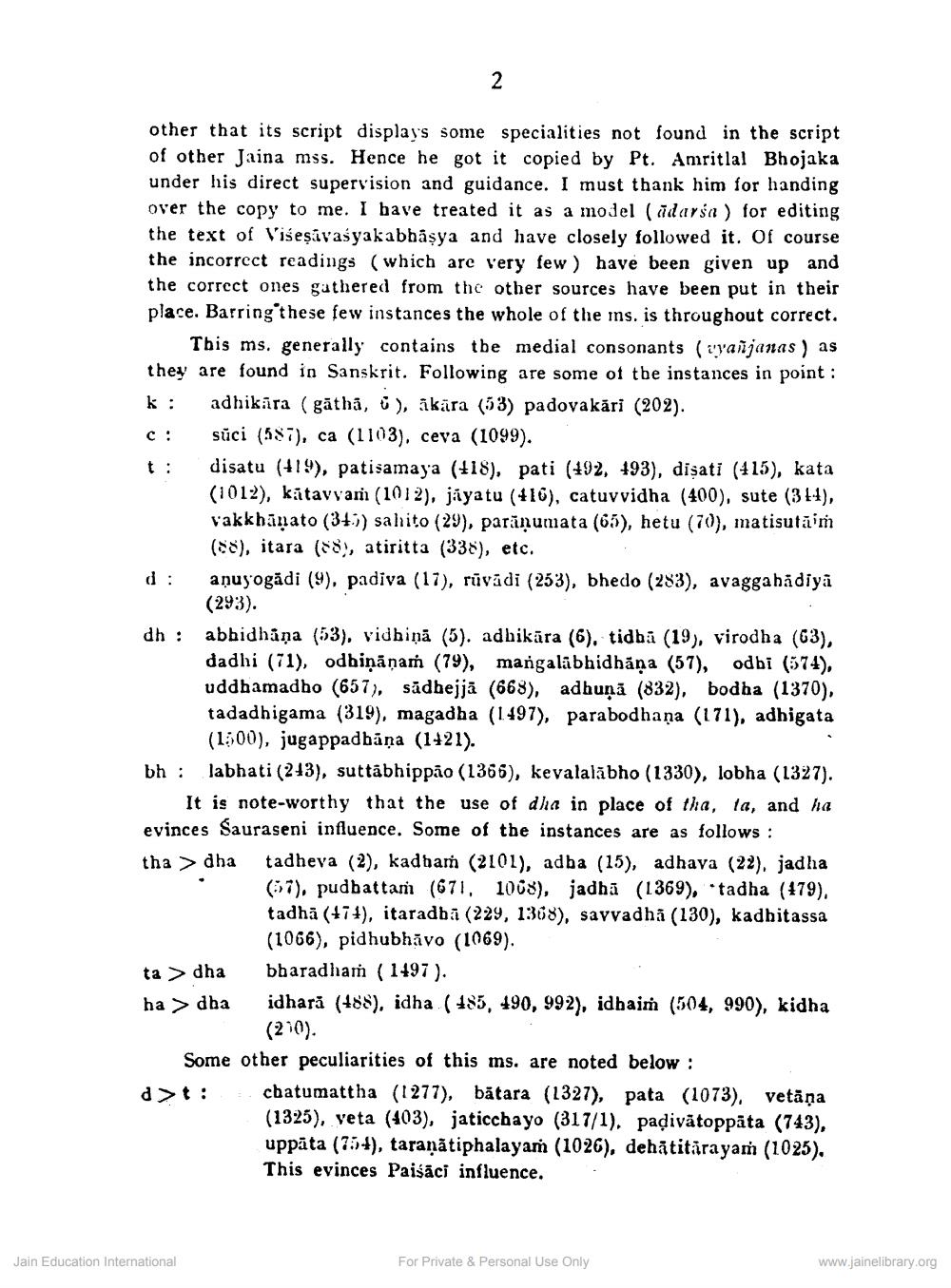________________
other that its script displays some specialities not found in the script of other Jaina mss. Hence he got it copied by Pt. Amritlal Bhojaka under his direct supervision and guidance. I must thank him for handing over the copy to me. I have treated it as a model (adarsa) for editing the text of Višeşāvašyakabhâsya and have closely followed it. Of course the incorrect readings (which are very few ) have been given up and the correct ones gathered from the other sources have been put in their place. Barring these few instances the whole of the is, is throughout correct.
This ms. generally contains tbe medial consonants (wyalijanas) as they are found in Sanskrit. Following are some of the instances in point: k: adhikara (gātha, o), akāra (53) padova kāri (202). C: súci (587), ca (1103), ceva (1099).
disatu (419), patisamaya (418), pati (192, 193), dişati (415), kata (1012), katavyan (1012), jáya tu (416), catuvvidha (400), sute (311), vakkhanato (31) salito (29), parāņumata (65), hetu (70), matisutām
(88), itara (88), atiritta (338), etc. d: aņuyogādi (9), padiva (17), rūvādi (253), bhedo (283), avagga hädiya
(293). dh: abhidhåņa (53), vidhiņa (5). adhikāra (6), tidba (19), virodha (63),
dadhi (71), odbiņāņam (79), mangalābhidhāņa (57), odbi (574), uddhamadbo (657), sādhejjā (663), adhuņã (832), bodha (1370), tadadhigama (319), magadha (1497), parabodhana (171), adhigata
(1500), jugappadbăņa (1421). bh; labhati (243), suttabhippão (1366), kevalalăbho (1330), lobha (1327).
It is note-worthy that the use of dha in place of tha, la, and ha evinces Sauraseni influence. Some of the instances are as follows: tha > dha tadheva (2), kadham (2101), adba (15), adhava (22). jadha
(57), pudbattam (671, 1008), jadhā (1369), 'tadha (179). tadhā (474), itaradbā (229, 1368), savvadhả (130), kadbitassa
(1066), pidhubhāvo (1069). ta > dha bharadham ( 1497 ). ha> dha idhară (488), idha ( 185, 490, 992), idhaiṁ (504, 990), kidha
(210). Some other peculiarities of this ms. are noted below: d>t: cbatumattha (1277), båtara (1327), pata (1073), vetāna
(1325), veta (403), jaticchayo (317/1). padivätoppåta (743), uppăta (754), taraņātiphalayam (1026), dehatitirayam (1025). This evinces Paisāci influence.
Jain Education International
For Private & Personal Use Only
www.jainelibrary.org




